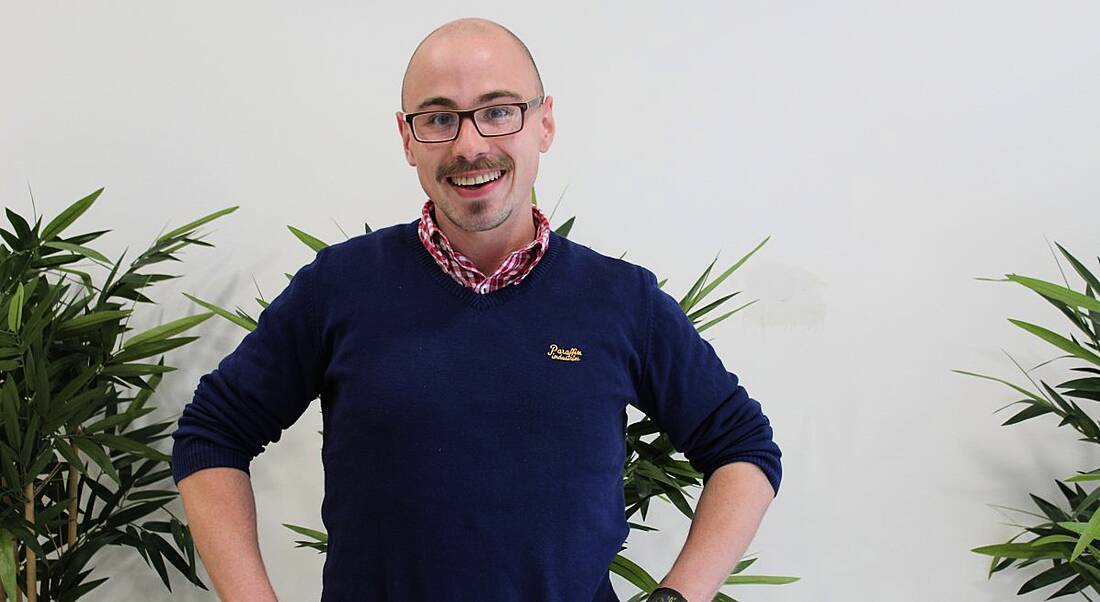Pre-sales engineer Michael O’Brien details his experience working in Kemp Technologies as a support engineer during his studies.
When Michael O’Brien was searching for work placement opportunities during his third year of study at Limerick Institute of Technology, he thought it would be typical of the intern experience – ‘shadowing’ without being allowed to complete actual tasks.
O’Brien didn’t anticipate the level of support that would be provided to him at Kemp Technologies.
From the outset, he was warmly welcomed to the team, benefiting from a pleasant workplace culture that promotes productivity.
The company allowed him to gain experience as a support engineer via hands-on training. When O’Brien was a student, he received mentorship from management and support from senior engineers during his dissertation.
What did you study in college?
Computer networks and systems management.
With this programme, are you now working in your desired industry?
Yes, absolutely. Kemp specialises in application delivery control, which involves a great deal of the content that I studied on my degree, especially from the computer networking perspective.
What drew you to Kemp Technologies when you were seeking work as a graduate?
I was first introduced to the company while searching for a work placement opportunity during my third year of study in college.
The company offered me a six-month contract as a support engineer, which provided me with the perfect environment to both further my education and gain valuable experience in industry.
What expectations did you have before you began the programme?
My expectations starting the programme were minimal. Most internships involve a ‘shadowing’ experience with little or no emphasis on completing real tasks.
Kemp is an exception to the rule in this respect, as my role consisted of working in real-world environments. The emphasis was on continuous learning throughout my placement programme.
What duties and responsibilities were you given initially?
Initially, the focus was on learning aspects of the product, such as licensing and acting as the first point of contact for customers on support requests. This gave great insight into how the product worked, and valuable experience dealing with customers.
Did the scope of your work change as the programme progressed?
Our manager encouraged us to be present for more complex support requests alongside senior engineers, with the view of progressing our knowledge base on both the product and networking in general.
As the programme progressed, I felt I had the ability to take more complex support requests. The programme prepared me from a technical perspective in order to understand issues, but also on how to deal with clients on a professional level.
Can you describe a typical day as in your role?
A typical day at work for me will involve responding to new customer support requests, but also following up with customers to ensure that any environment changes made had the desired effect for the customer’s issue.
If I am exposed to a customer environment where new integration aspects are introduced, I have an onus to report this integration with our product.
The role is mixed discipline, involving my technical skillset but also involving soft skills, which I have learned while under Kemp’s employment.
How do your responsibilities compare to more experienced employees’?
My responsibilities are similar to more experienced employees in the sense that the company expects a high level of professionalism when dealing with both internal employees and clients.
As my role is client-facing, it is crucial for me to have a high degree of decorum and respect for the person at the other end of the phone. While my role is junior in this company, my experience and technical skills are well utilised.
Do you feel more prepared for working life after completing this programme?
Absolutely, this company is a market leader in their field. The exposure that I have gotten, especially to other multinational companies, has provided me with a good idea of what is currently happening in my chosen field.
The bar is set quite high by Kemp, in terms of the work ethic they expect from their employees but also in terms of how they treat their employees. It would be difficult to find a company that creates such a good working atmosphere while also maintaining a high work rate.
The company has created a good work-life balance for employees. Looking into the future, I feel that I would be quite prepared for any new challenges, whether they be personal or professional.
Why should someone apply to the graduate programme at Kemp?
In Kemp, employees have a voice. I’ve worked in numerous companies, all with some level of bureaucracy. The same cannot be said for Kemp.
Even during my term here as a student, I received mentorship from management regarding my dissertation. The company expressed interest in my academic progress and provided invaluable feedback on project work. I’m not aware of any other multinational company where people in management roles will take time out of their busy schedule to sit down with a student regarding their dissertation progress.
To me, this creates a good deal of faith in the idea that my input has credibility, and provides me with the motivation to work hard for the cause.
My role as support engineer has evolved into a permanent role as pre-sales engineer. While as a student, I would never have thought of this as potential career path, I’m delighted that Kemp have given me this opportunity.
The role will potentially open a lot more doors for me in my future and for that, I’m extremely grateful. I am being given mentorship from senior engineers who have worked in the industry at a high level for years. I am working with high-stakes projects and the company has shown a great deal of faith in me, both personally and professionally.
If you have an avid interest in technology and a strong willingness to learn, Kemp will most certainly provide you with the platform to advance your career. You will be exposed to new technologies and technical issues on an almost daily basis.




